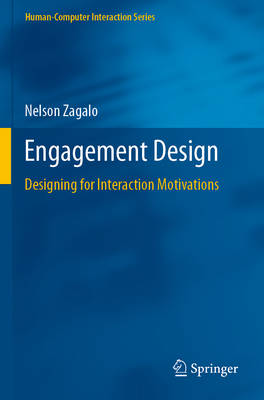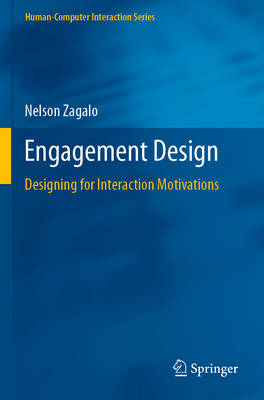
- Retrait gratuit dans votre magasin Club
- 7.000.000 titres dans notre catalogue
- Payer en toute sécurité
- Toujours un magasin près de chez vous
- Retrait gratuit dans votre magasin Club
- 7.000.000 titres dans notre catalogue
- Payer en toute sécurité
- Toujours un magasin près de chez vous
Description
Interactive media designers have been discussing modes to optimize interaction design beyond mere usability. With the arrival of Emotional Design followed by the success of the User Experience (UX) approaches, the discussion continued and augmented. Experience has become a complex buzzword, which is more about the subject's experience than the product, and this is why it's difficult, or even impossible, to define it in a concise manner.
We propose to move the discussion from Experience towards Engagement, to emphasize the design of the relationship between artefacts, contexts and users. Engagement asks for a more concrete type of experience, with specific needs, motives, skills and competences, which can be more clearly worked into the design of artefacts. Engagement also differs from other concepts e.g. fun, enjoyment, happiness or well-being and is open enough to grant freedom to designers in creating their personal world views.
To push this new approach, we offer in this book a full model for the design of engagement in interactive media, still believing it can be applied beyond that. The model is arranged around what we call the three engagement streams: Progression, Expression and Relation.
Spécifications
Parties prenantes
- Auteur(s) :
- Editeur:
Contenu
- Nombre de pages :
- 161
- Langue:
- Anglais
- Collection :
Caractéristiques
- EAN:
- 9783030370879
- Date de parution :
- 18-03-21
- Format:
- Livre broché
- Format numérique:
- Trade paperback (VS)
- Dimensions :
- 155 mm x 235 mm
- Poids :
- 453 g







